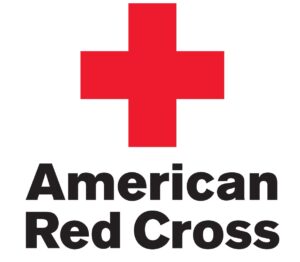 Dire situation facing blood supply, those in need of blood transfusions. Donors have the chance to help save lives, win trip to Super Bowl LVI
Dire situation facing blood supply, those in need of blood transfusions. Donors have the chance to help save lives, win trip to Super Bowl LVI
The American Red Cross is facing a national blood crisis – its worst blood shortage in more than a decade. Dangerously low blood supply levels are posing a concerning risk to patient care and forcing doctors to make difficult decisions about who receives blood transfusions and who will need to wait until more products become available.
Blood donations are critically needed to help prevent further delays in vital medical treatments, and donors of all blood types – especially type O − are urged to make an appointment now to give in the weeks ahead.
In recent weeks, the Red Cross had less than a one-day supply of critical blood types and has had to limit blood product distributions to hospitals. At times, as much as one-quarter of hospital blood needs are not being met.
Pandemic challenges
The Red Cross continues to confront relentless challenges due to COVID-19, including about a 10% overall decline in the number of people donating blood as well as ongoing blood drive cancellations and staffing limitations. Additionally, the pandemic has contributed to a 62% drop in blood drives at schools and colleges.
“Winter weather across the country and the recent surge of COVID-19 cases are compounding the already-dire situation facing the blood supply,” said Dr. Baia Lasky, medical director for the Red Cross. “Please, if you are eligible, make an appointment to give blood in the days and weeks ahead to ensure no patient is forced to wait for critical care.”
The Red Cross and the NFL are partnering this January, during National Blood Donor Month, to urge individuals to give blood or platelets and help tackle the national blood shortage. Those who come to give blood, platelets or plasma in January will automatically be entered for a chance to win a getaway to Super Bowl LVI in Los Angeles. As an extra thank-you from the Red Cross, those who come to donate will also be automatically entered to win a home theater package and a $500 e-gift card. Terms apply; visit RedCrossBlood.org/SuperBowl for more information.
Who donations help
Kala Breder knows all too well how dire not having blood available can be. In July 2020, hours after the birth of her son by emergency Cesarean section, Breder developed a complication and began bleeding uncontrollably. As doctors fought to save her life, they exhausted the entire blood supply at the hospital as well as all available blood within a 45-mile radius. Ultimately, she was flown to another hospital because there wasn’t enough blood locally.
Breder credits the 58 different blood products she received with helping save her life. “Without one of those, I probably wouldn’t be here,” she said. “I needed every last unit.”
Volunteers needed
In addition to blood donors, the Red Cross also needs the help of volunteers to support critical blood collections across the country. Blood drive volunteers play an important role by greeting, registering, answering questions and providing information to blood donors throughout the donation process. Blood transportation specialists – another volunteer opportunity − provide a critical link between blood donors and blood recipients by delivering blood to hospitals in communities across the country. To volunteer to support Red Cross blood collections, visit redcross.org/volunteertoday.
Blood drive safety
Each Red Cross blood drive and donation center follows the highest standards of safety and infection control, and additional precautions – including face masks for donors and staff, regardless of vaccination status – have been implemented to help protect the health of all those in attendance. Donors are asked to schedule an appointment prior to arriving at the drive.
Save time during donation
Donors can also save up to 15 minutes at the blood drive by completing a RapidPass®. With RapidPass®, donors complete the pre-donation reading and health history questionnaire online, on the day of donation, from a mobile device or computer. To complete a RapidPass®, follow the instructions at RedCrossBlood.org/RapidPass or use the Red Cross Blood Donor App.
To donate blood, individuals need to bring a blood donor card or driver’s license or two other forms of identification that are required at check-in. Individuals who are 17 years of age in most states (16 with parental consent where allowed by state law), weigh at least 110 pounds and are in generally good health may be eligible to donate blood. High school students and other donors 18 years of age and younger also must meet certain height and weight requirements.
Health insights for donors
At a time when health information has never been more important, the Red Cross is screening all blood, platelet and plasma donations from self-identified African American donors for the sickle cell trait. This additional screening will provide Black donors with an additional health insight and help the Red Cross identify compatible blood types more quickly to help patients with sickle cell disease who require trait-negative blood. Blood transfusion is an essential treatment for those with sickle cell disease, and blood donations from individuals of the same race, ethnicity and blood type have a unique ability to help patients fighting sickle cell disease.
Donors can expect to receive sickle cell trait screening results, if applicable, within one to two weeks through the Red Cross Blood Donor App and the online donor portal at RedCrossBlood.org






